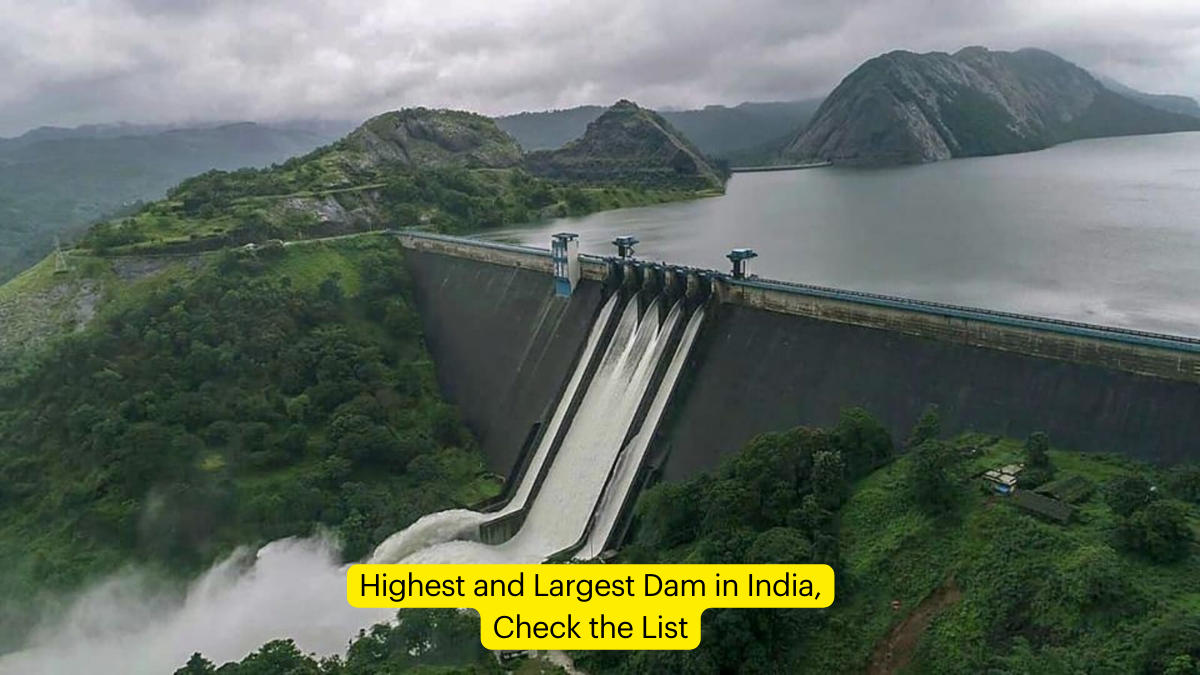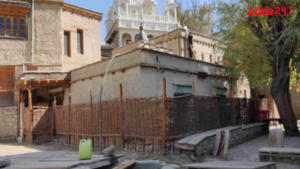Dams are like barriers that stop the flow of water, the blockage of the water results in the formation of reservoirs. Hence, the water reservoir is used to generate electricity which is known as hydroelectricity. The other functions of the water reservoir are irrigation, human consumption, and aquaculture. The formation of dams also suppresses the danger of floods.
Largest Dam in India
Tehri Dam is the largest dam in India, standing 260.5 meters (855 feet) tall and stretching 575 meters (1,886 feet) across on the Bhagirathi River in Uttarakhand. It plays a crucial role in water management and hydroelectric power generation.
Location of Largest Dam in India
The Tehri Dam is situated on the Bhagirathi River in Uttarakhand, near the town of Tehri. Its strategic location in the Himalayan region makes it an essential infrastructure project for northern India.
Construction Timeline of Largest Dam in India
Construction of the Tehri Dam began in 1978. After nearly three decades of work, the dam was completed in 2006. The project involved substantial engineering challenges and was a major feat in Indian infrastructure development.
Dimensions and Basic Features of Largest Dam of India
- Height: The dam stands at an impressive 260.5 meters (855 feet), making it one of the tallest dams in the world.
- Length: It stretches 575 meters (1,886 feet) across, providing a vast storage capacity.
- Type: The Tehri Dam is a multi-purpose rock and earth-fill embankment dam, designed to handle various functions, including water storage, hydroelectric power generation, and flood control.
Dams in India: Types of Dams
In India, dams are important for water management and power generation. There are various types of dams, check the names of different types of dams:
- Arch Dam
- Gravity Dam
- Arch-Gravity Dam
- Barrages
- Embankment Dams
- Rock-Fills Dams
- Concrete-face rock-fill Dams
- Earth-fill dams.
Top-10 Largest Dams in India
Tehri Dam
| Top-10 Largest Dams in India | ||||
| Rank | Dams | Purpose | River | District |
| 1. | Tehri Dam | Hydroelectric Irrigation | Bhagirathi | Tehri Garhwal |
| 2. | Lakhwar Dam | Hydroelectric Irrigation | Yamuna | Dehradun |
| 3. | Idukki Arch Dam | Hydroelectric Irrigation | Periyar | Idukki |
| 4. | Bhakra Dam | Hydroelectric Irrigation, Recreation | Satluj | Bilaspur |
| 5. | Pakal Dul Dam | Hydroelectric | Marusudar | Kishtwar |
| 6. | Sardar Sarovar Gujarat Dam | Hydroelectric Irrigation | Narmada | Narmada |
| 7. | Srisailam (N.S.R.S.P) Dam | Hydroelectric Irrigation | Krishna | Kurnool |
| 8. | Ranjit Sagar Dam | Flood Control, Hydroelectric Irrigation | Ravi | Kathua |
| 9. | Baglihar Dam | Hydroelectric | Chenab | Ramban |
| 10. | Chamera I Dam | Hydroelectric | Ravi | Chamba |



 Paris Olympics 2024 Medal Tally, India M...
Paris Olympics 2024 Medal Tally, India M...
 Leh's Oldest Public Mosque, Know the Nam...
Leh's Oldest Public Mosque, Know the Nam...
 ISDN Full Form, Its Overview, History, T...
ISDN Full Form, Its Overview, History, T...

